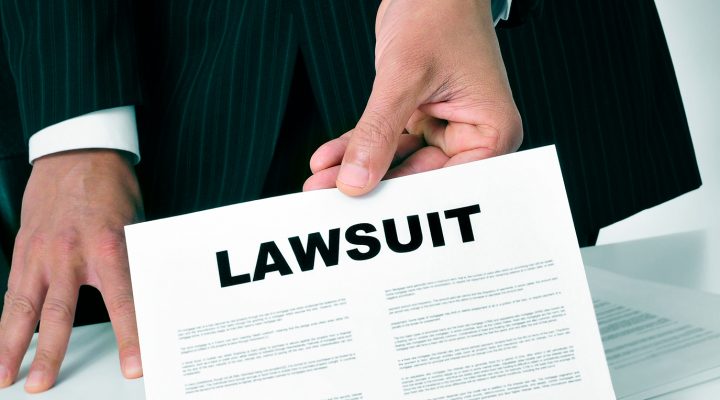The concept of whether the Southern Baptist Convention is a unified church that can be held liable for sexual abuse that happens in individual congregations will be put to the test yet again in a new lawsuit filed in U.S. District Court for the Western District of Tennessee.
This suit combines claims of six plaintiffs against the SBC and four of its affiliated churches where sexual abuse is alleged to have occurred. Two other churches where abuse is alleged to have occurred are not identified.
In a novel twist, the suit filed part of its claim under the Racketeers Influenced and Corrupt Organizations Act, known as RICO. It says the SBC Executive Committee “is an association-in-fact” within the meaning of federal law and “is an ongoing entity (enterprise) that functions as a continuing unit” that “was used as a tool to effectuate defendant(s) pattern of racketeering and use its influence over the local churches.”
In the past, such claims were dismissed against the SBC because of the Baptist doctrine of local church autonomy; the SBC claims it has no control over any other Baptist body. Unlike Catholics or Methodists, the SBC has no bishops and no say in the affairs of individual churches.
But that defense has come under more intense scrutiny in the last three years due to assertions made in other court cases.
In one case, the SBC Ethics and Religious Liberty Commission filed an amicus brief with the U.S. Supreme Court claiming the SBC works as a hierarchy. That brief later was amended. But the larger case in which that brief was filed — a defamation suit brought against the SBC North American Mission Board by Will McRaney — also has challenged the reality of autonomy versus the ideal doctrine of autonomy.
“The Baptist Church has done little or nothing to train employees and agents to look for abusers, screen abusers or protect church members and volunteers from the sexual predators who infiltrate its ranks.”
The latest case, which was filed in federal court Dec. 31 but only came to public light Feb. 6, alleges: “Instead of exercising due care and diligence to protect these individuals under these circumstances from the serious harm described above, the Baptist Church has given pastors, other employees and agents, complete discretion and freedom to have personal, private and spiritual encounters with these individuals. At the same time, the Baptist Church has done little or nothing to train employees and agents to look for abusers, screen abusers or protect church members and volunteers from the sexual predators who infiltrate its ranks.”
This case also cites the independent investigation of Guidepost Solutions into mishandling of sexual abuse claims at the SBC Executive Committee: “The investigation demonstrated that the Southern Baptist Church has gone to great lengths to protect ‘its own.’ It has been the practice of the Southern Baptist Church through its pastors and other church officials and agents, to conceal instances of sexual abuse and complaints by victims. The Church zealously maintains the secrecy of the horrifying truth of sexual abuse in the Church.”
Further, the defendants allege the SBC and its Executive Committee have resisted calls for reform and blocked reasonable efforts to educate churches and to prevent abusers from being passed from congregation to congregation.
“Defendants have maliciously and systematically engaged in covering up and concealing instances of sexual abuse by the church members and employees as a strategy of denying the rights of sexual abuse survivors,” the suit says.
Those defendants are the SBC Executive Committee; Fountain Valley Baptist Church in Fountain, Colo.; Faith Baptist Church in Danville, Ill.; Airline Baptist Church in Bossier City, La; and First Baptist Church of Talladega, Ala.
“Defendants have maliciously and systematically engaged in covering up and concealing instances of sexual abuse by the church members and employees as a strategy of denying the rights of sexual abuse survivors.”
Plaintiff Candence Finch alleges she was sexually abused between the ages of 13 and 18 by a pastor at Fountain Valley Baptist Church.
Plaintiff Tereasa Flanagan alleges she was sexually abused at age 13 by a deacon’s son at a church in Holy Hill, Fla., that is not identified or named in the suit.
Plaintiff Sally George alleges she was sexually abused at age 17 by a church staff member at Faith Baptist Church.
Plaintiff Christopher Juarez alleges he was sexually abused from ages 11 to 16 by a pastor at a Southern Baptist church in Aurora, Colo., that is not identified or named in the suit.
Plaintiff Kelli Mims alleges she was sexually abused between ages 14 and 18 by an assistant pastor and a minister of music at Airline Baptist Church.
Plaintiff James Shannon alleges he was sexually abused between ages 8 and 10 by a church employee at an SBC-related Royal Ambassador Camp through his involvement with First Baptist Church located in Talladega.
This is one of more than a dozen known lawsuits pending against the SBC or the SBC Executive Committee related to sexual abuse claims.
The law firm representing the plaintiffs in this case, Farrell and Fuller, is based in San Juan, Puerto Rico, and recently was involved in a multi-million-dollar settlement related to opioid abuse in West Virginia.
Related articles:
Dragging the SBC into court drags truth into light | Opinion by Christa Brown
Confidential settlement reached in Pressler sexual abuse case
What the SBC should do about its most famous accused sexual abuser | Opinion by Marv Knox
McRaney warns dismissal of his case against NAMB raises urgent threat to Baptist autonomy


